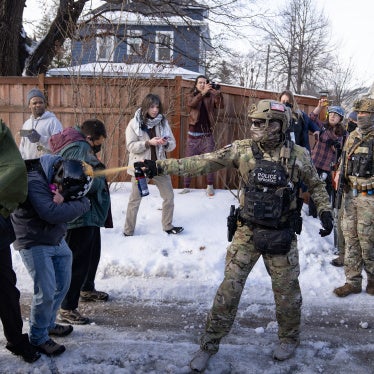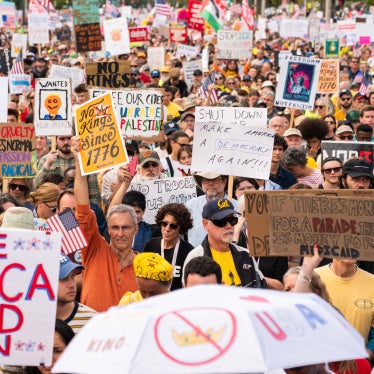Much of the U.S. public’s concern about post-September 11 policies has focused on the government’s new surveillance powers, including the ability to peruse business records, library files, and other data of individuals against whom there may not even be any specific suspicion of complicity with terrorism. These policies potentially affect far more U.S. citizens than, for example, the designation of “enemy combatants,” or the decision to hold individuals for months in prison on routine visa charges. But the latter efforts to diminish the right to liberty and to curtail or circumvent the courts’ protection of that right may be far more dangerous to the U.S. polity as a whole.
|
Commentary
Above the Law: Executive Power after September 11 in the United States
Your tax deductible gift can help stop human rights violations and save lives around the world.
Region / Country
Most Viewed
-
March 29, 2021
“Everything I Have to Do is Tied to a Man”

-
November 25, 2019
A Dirty Investment

-
September 20, 2017
Iraq/KRG: 1,400 Women, Children From ISIS Areas Detained

-
November 12, 2018
“Shall I Feed My Daughter, or Educate Her?”

-
January 14, 2026
Sri Lanka: UN Finds Systemic Sexual Violence During Civil War




